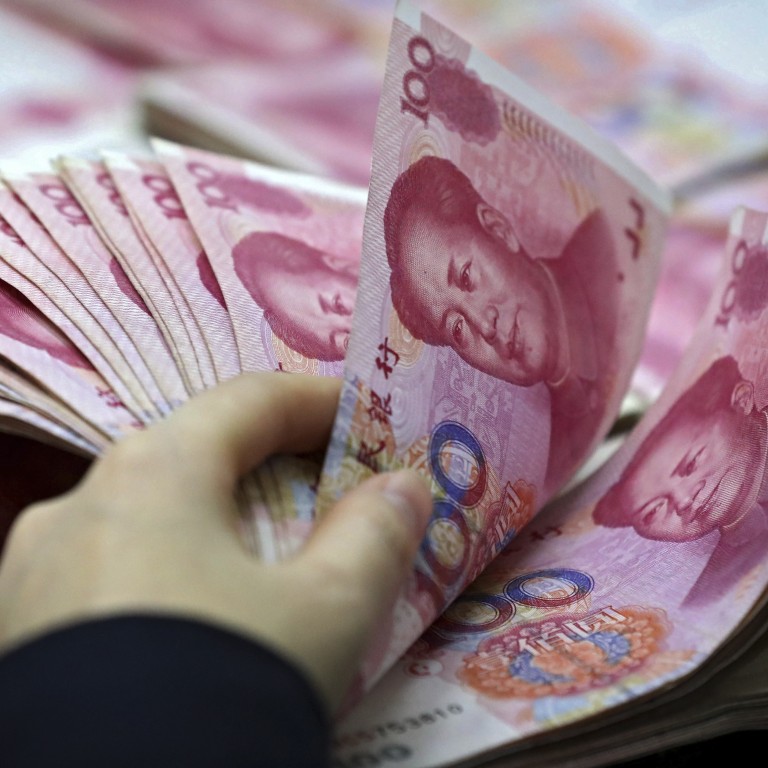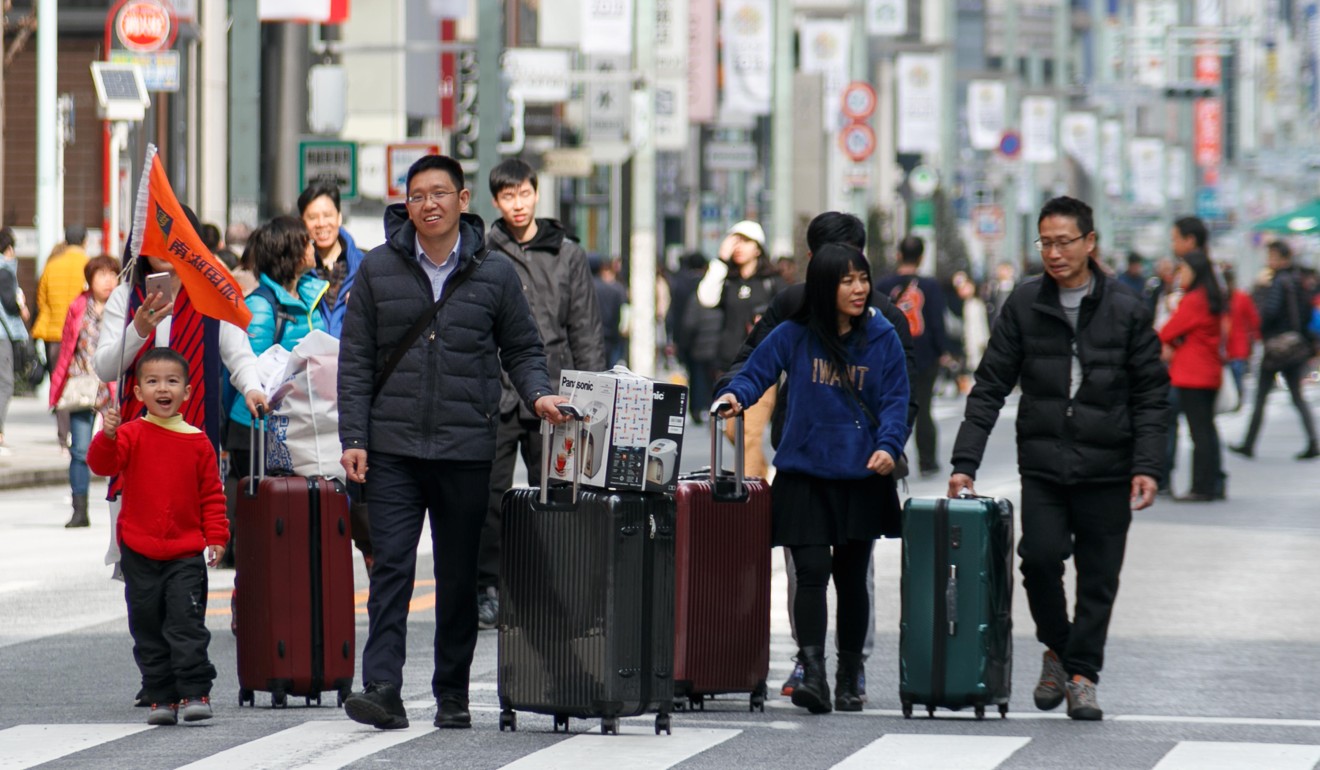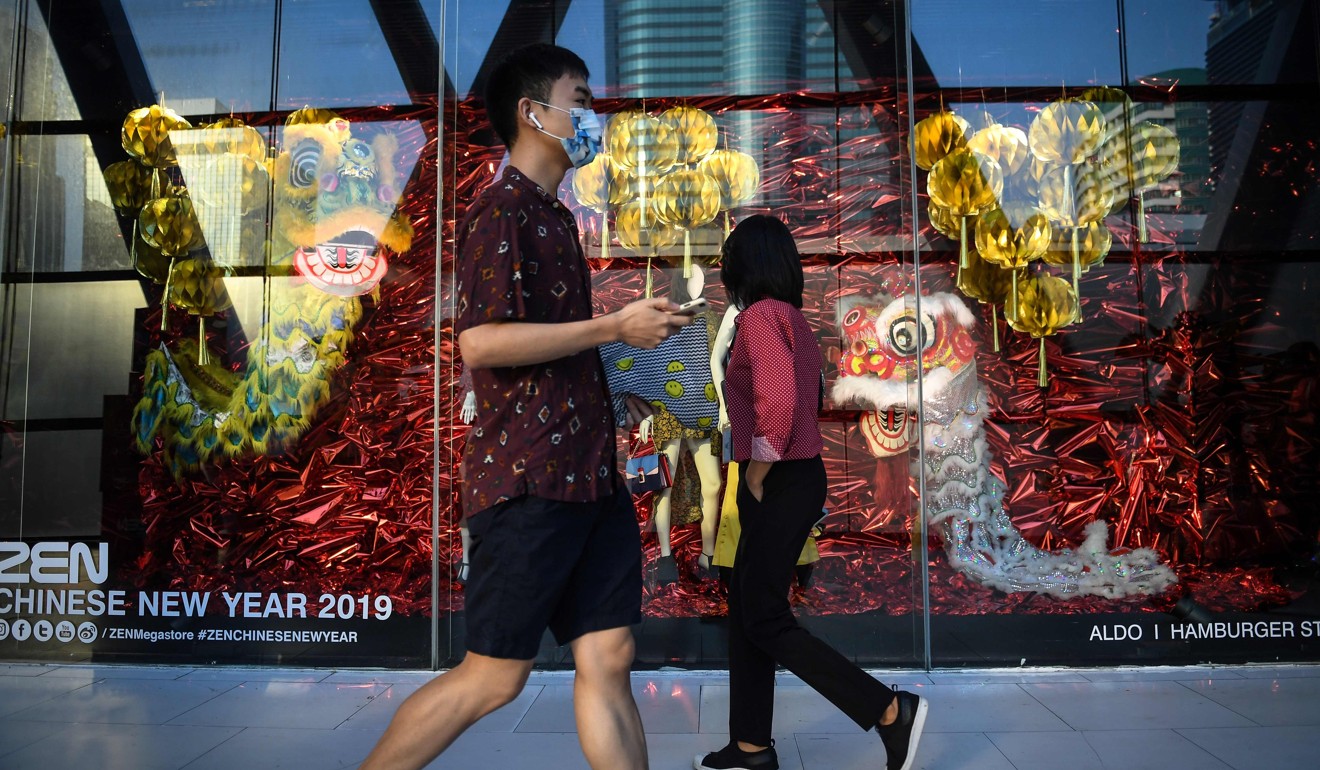
China cracking down on illegal underground forex trading in bid to control capital flight
- Beijing cracking down on use of unregulated underground banks to buy or sell foreign currency to maintain stability of the exchange rate and its slowing economy
- Prison term of up to five years and a fine for ‘severe’ offence, jail term of more than five years and fine or confiscation of property for an ‘extremely severe’ violation
China is cracking down on individuals and corporations who buy or sell foreign currency on the black market as the government seeks to control capital flight and maintain the stability of the yuan exchange rate and its slowing economy.
According to the joint judicial interpretation by the Supreme People’s Court and the Supreme People’s Procuratorate, effective from the start of February, illegal forex trading activities would be a criminal offence, with those involved charged with engaging in an illegal business operation.
A cumulative transaction volume of 5 million yuan (US$737,000) or illegal profits of 100,000 yuan (US$14,749) would be deemed a “severe” offence and be subject to a prison term of up to five years and a fine of up to five times of the profits.
An “extremely severe” violation, defined as cumulative transactions of more than 25 million yuan (US$3.69 million) or 500,000 yuan (US$73,745) in illegal profits, would be subject to a jail term of more than five years and a fine of up to five times of the profits, or confiscation of property.
The thresholds for prosecution would be halved if the violator had a criminal record, had received administrative punishment in the past, or had refused to cooperate with authorities to trace illegal capital flows.

The announcement of the increased penalties came before the beginning of the week-long Lunar New Years holiday, during which demand for foreign currencies rose sharply as more than six million Chinese travelled overseas.
Beijing has kept tight control of capital outflows since massive capital flight in 2015-2017 exerted severe downward pressure on yuan exchange rate, forcing authorities to exhaust at least one-fifth of the nation’s foreign exchange reserves to defend the currency.
Currently, the government allows each individual to buy up to US$50,000 a year in foreign currencies and bans large “irrational” outbound investments, such as purchases of hotels, real estate, sports clubs and entertainment concerns.
The government rules “were set to prevent illegal capital outflows and maintain the stability of yuan exchange rate,” said Shen Jianguang, chief economist at JD Digits.
Despite potential disruptive factors such as the China-US trade war, Shen forecast that the yuan’s exchange rate would strengthen to 6.5 against the US dollar towards the end of this year, a far cry from the market panic three months earlier that the currency would fall below 7 to the dollar.
In recent months capital inflows have increased significantly given that overseas investors have gained wider access to the country’s equities and bond markets through the Hong Kong Connect programmes.
Overseas institutions increased their holding of yuan-denominated bonds by 582.5 billion yuan (US$85.91 billion) in 2018, a year-on-year increase of 68 per cent, according to China Merchants Securities.
In addition, overseas parties invested nearly 300 billion yuan (US$44.25 billion) into China’s A-share market through the Stock Connect and Qualified Foreign Institutional Investors programmes last year.
“The top leadership has demonstrated extraordinary determination to maintain stability, a sign of its bottom line mentality,” Shen added.
Tan Yaling, president of China Forex Investment Research Institute, a Beijing-based think tank, said the government policies are aimed at preventing financial risks from unregulated shadow market operations.
“The black market has posed a threat to the bank-centred foreign exchange market and the government’s capital control efforts,” Tan said.
Underground banks are one of major avenues that people in China use to transfer money out of the country and so are a key target of the government’s crackdown in recent years, she added.

Among the 15 enforcement actions announced by the State Administration of Foreign Exchange in December, four were for illegal transactions by individuals through underground banks.
In one case, a Hong Kong resident surnamed Zhou was found to have traded the Hong Kong dollar through underground banks from August 2014 to August 2016.
The person was fined 1.4 million yuan (US$206,000), one tenth of the volume of his transactions, and was put on the list of individuals closely monitored by the People’s Bank of China.

